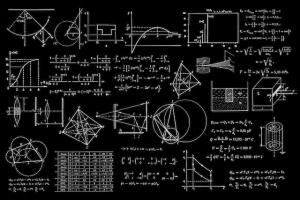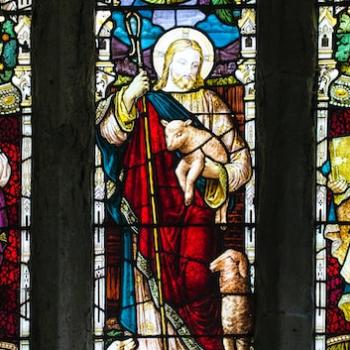This week’s Gospel reading asks us to give up our usual way of computing value in favor of a “cornerstone calculus.”

For the past several years, I have taken on a part-time gig in addition to my regular full-time work. If it came with a title, it would be something like, “Senior Project Manager, Bucket List Trip Division.” If it paid even a minimum hourly rate, I’d be rich. It has neither, but that’s not why I submit my resignation today. It’s because in a couple short hours I will board a plane to a faraway destination I have spent ages longing to see. It’s been the cornerstone of my dreams for as long as I can remember. But today, I’m quitting my job because it’s no longer needed.
The Cornerstone of My Dreams
My project management job duties have included picking up multiple side hustles to be able to afford my trip. I’ve read about 4,000 vacation blogs. I’ve purchased RFID blocking travel items even though I don’t know what the letters stand for. I’ve downloaded 12 different phone apps designed to tell me the correct time around the globe, calculate currency conversation rates, hail a taxi in a city where I don’t speak the language, and translate said language out loud for me. I’ve worshiped at the altar of Rick Steves.
In other words, I’ve done everything a prospective traveler should do to have an amazing experience. Whether I do or not remains to be seen, though, for the simple reason that Life is Life. It will unfold as it will, not necessarily the way I have painstakingly prepared for it to.
Changing the Calculus
This Sunday’s gospel includes Jesus quoting the famous lines from Hebrew Scripture: ‘The stone that the builders rejected has become the cornerstone…” (Matthew 21:42). Jesus is referring to himself and foreshadowing his passion and death. But it’s more than that too. That one statement is also the closest thing we have to a single equation that explains the nature of the universe.
It’s another way of saying that nothing is the way it appears to be. Everything is backwards. But in a good way.
The Sunday gospel readings leading up to tomorrow’s all play from the same sheet music. Two weeks ago, we heard the parable of the laborers in the vineyard. The vineyard owner ends up paying even those who worked only an hour the same as those who worked all day. He tells those who complained, “’My friend, I am not cheating you. Did you not agree with me for the usual daily wage? Take what is yours and go. What if I wish to give this last one the same as you? Or am I not free to do as I wish with my own money? Are you envious because I am generous?’ Thus, the last will be first, and the first will be last” (20:14-16). Ouch.
But It’s Not Fair!
Then last week, we heard Jesus ask his disciples which son did the will of the father. Was it the one who refused to work but then changed his mind and did anyway? Or the one who said he would but didn’t? The disciples correctly respond that the first son did the right thing. Jesus goes on to draw a parallel between the righteous who believe they are checking all the boxes when it’s really the “tax collectors and prostitutes” who get it right by “changing their minds” (21:28-32).
In the end, none of us gets what we think we “deserve.” Life is too beautifully complex for such a simple calculus. Instead, it’s the prostitute who becomes the saint, the idle worker who gets the big payday, and the rejected stone that becomes the rock upon which the kingdom stands.
Calculus: The Hardest Class of All
Talk about a bitter pill. Doesn’t the person who eats right and exercises the one who shouldn’t ever need chemo? Isn’t it the person who comes in to the office on evenings and weekends to put out administrative fires the one who should get the promotion? Doesn’t the person who spent years saving, researching, planning, and dreaming of her “bucket list trip” deserve to have a glorious experience? Hell, yeah!
But it doesn’t work that way. And that’s actually a good thing. We tend to think of ourselves as the faithful full-day laborers when we’re really the one-hour slackers. We like to think of ourselves as the son who will respond the way Dad wants when we’re really the one who blows him off. And when it comes to stone, we see ourselves more as polished marble than dirty, tread-upon gravel. We are the “tax collectors and prostitutes.”
The Last, The First, The Every
Jesus taught us this “cornerstone calculus” in which the last one across the finish line becomes the gold medal winner atop the victor’s podium. It’s illogical and frustrating, but it’s also profoundly beautiful. A world in which we all get what we think we “deserve” has no real need for love, forgiveness, healing, compassion, and mercy. A world where everything “adds up” has no room for life, death, and rebirth.
The last shall be first. If only it worked that way with air travel!












